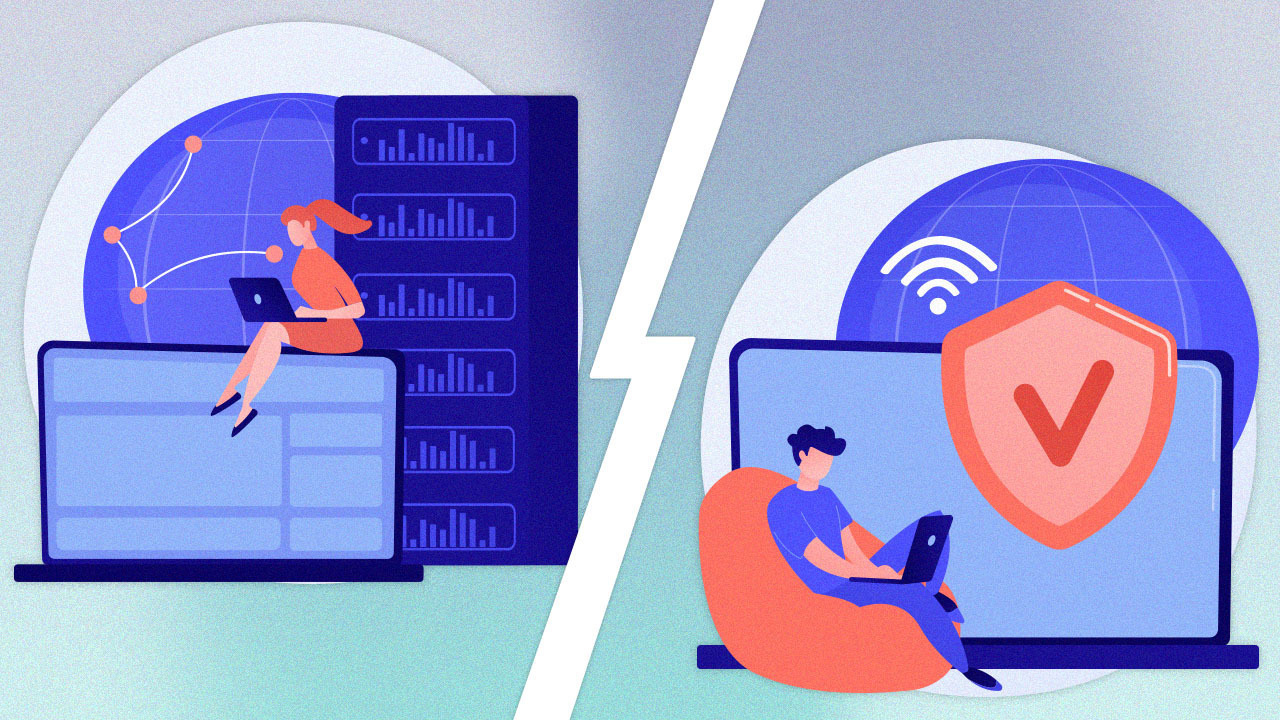In an era where online privacy and security are paramount, individuals often turn to tools like proxies and VPNs to safeguard their digital footprint. Both proxies and VPNs serve as intermediaries between users and the internet, but they differ significantly in their functionality and the level of privacy they offer. In this comprehensive guide, we’ll unravel the distinctions between proxies and VPNs, helping you make an informed decision about which solution suits your needs.
Understanding Proxies:
1. Defining Proxies:
A proxy, short for “proxy server,” acts as an intermediary between your device and the internet. When you connect to the internet through a proxy, your requests are routed through the proxy server before reaching the target website. This process masks your IP address and provides a degree of anonymity.
2. Types of Proxies:
Proxies come in various types, including HTTP proxies, HTTPS proxies, SOCKS proxies, and transparent proxies. Each type serves a specific purpose, from basic web browsing to more secure and versatile applications.
The Role of VPNs:
3. Defining VPNs:
A Virtual Private Network (VPN) extends a private network across a public network, creating a secure tunnel for your internet traffic. When you connect to a VPN server, your data is encrypted, offering a heightened level of security and anonymity compared to a standard internet connection.
4. Encrypted Connection:
One of the primary features of VPNs is their ability to encrypt data. This encryption protects your online activities from potential eavesdropping and ensures that sensitive information, such as login credentials and personal details, remains secure.
Key Differences:
5. Anonymity and IP Address Masking:
While both proxies and VPNs can mask your IP address, VPNs provide a more comprehensive solution. Proxies are generally suitable for basic IP masking, but VPNs add an extra layer of encryption, making it challenging for third parties to trace your online activities.
6. Encryption and Security:
VPNs excel in providing robust encryption, securing your data even on unsecured networks. Proxies may offer some level of security, but they lack the comprehensive encryption that VPNs provide, making VPNs a preferred choice for sensitive transactions and data.
7. Application Compatibility:
Proxies are often used for specific applications, such as web browsing or accessing geo-restricted content. VPNs, on the other hand, secure all internet traffic from your device, making them suitable for a wide range of applications, including online gaming and file sharing.
8. Ease of Use:
Proxies are relatively straightforward to set up and use, often requiring configuration within specific applications or browsers. VPNs, while slightly more complex in initial setup, provide a seamless and continuous secure connection for all internet activities once configured.

When to Use Each:
9. Proxies – Quick Access and Basic Anonymity:
Use proxies when you need quick access to geo-restricted content or basic anonymity for web browsing. Proxies are suitable for scenarios where encryption is not a top priority, and you want to alter your IP address for specific purposes.
10. VPNs – Comprehensive Privacy and Security:
Conclusion:
In conclusion, the choice between a proxy and a VPN depends on your specific needs and the level of privacy and security you require. Proxies are effective for basic tasks and IP masking, while VPNs offer a more comprehensive and secure solution with encrypted connections. Whether you prioritize ease of use, anonymity, or robust security, understanding the differences between proxies and VPNs empowers you to make an informed decision based on your online activities and privacy preferences.
FAQ’s
Q1. What is the primary difference between a proxy and a VPN?
The primary difference lies in their functionality and level of privacy. A proxy acts as an intermediary between your device and the internet, masking your IP address. In contrast, a VPN creates a secure, encrypted tunnel for your internet traffic, providing a higher level of privacy and security.
Q2. How does a proxy work, and what is its main purpose?
A proxy works by forwarding your internet requests through a server, hiding your IP address in the process. Its main purpose is to provide anonymity and access to geo-restricted content. Proxies are often used for specific applications, such as web browsing.
Q3. What is the role of a VPN, and how does it differ from a proxy?
A VPN, or Virtual Private Network, extends a private network over a public one, encrypting your internet traffic. Unlike proxies, VPNs secure all internet activities from your device, offering a more comprehensive solution for privacy and security.